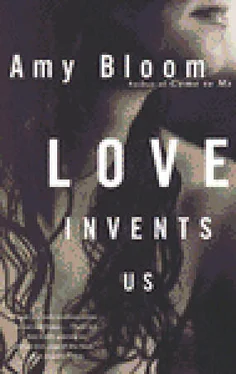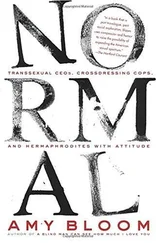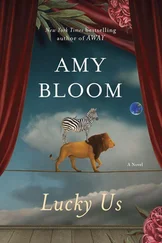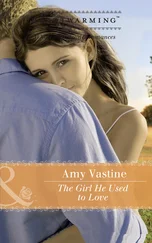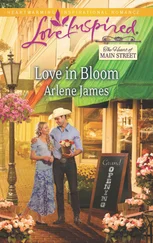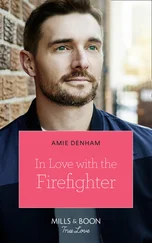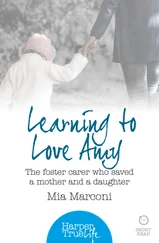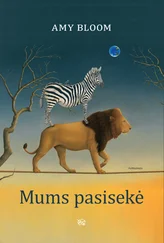Mrs. Hill leaned back in her recliner and twisted her face away to watch me.
“In my closet there’s a hatbox, an old red hatbox. Bring it to me, sugar.”
Mrs. Hill only used endearments when she was asking me a favor or criticizing me.
The closet would have been my mother’s worst nightmare: blouses lying on the floor in their own wrinkled, dusty puddles, single shoes turned heel up, sticking into piles of sweaters and pants. On the top shelf were three hatboxes, one faded red, one with green and white stripes, and a yellowed one with grimy ivory tassels hanging from the sides. Mrs. Hill was much shorter than I was and could barely hobble from room to room; the hatboxes and the shelf they sat on were covered in dust.
Mrs. Hill rested the red hatbox in her purple velour lap, her bony knees hunched up to keep it from sliding to the floor. “Some pretty things in here. If I kept them out, a burglar might get them. No burglar’s going hunting through an old lady’s underthings, through a messy old closet.” I was always looking to justify the mess in my room, too.
Mrs. Hill lifted off the lid and handed it to me, the thick dust rippling slightly.
“What about these, miss? You don’t see these anymore.”
They were eight long silver straws with filigreed hearts at their ends. Mrs. Hill handed them to me one by one, and I ran my fingers over the thin silver lacework around the hearts’ edges. She waved one straw in the air.
“Spoons for iced tea. Plus the stems are hollow, so you can sip too. Wedding present.” She closed her eyes. “Wedding present from Alva and Edna Thomas, he worked with Mr. Hill. Iced tea and strawberry shortcake in the summer. And brandy cup and lemon cake with burnt sugar frosting at Christmas.”
I had never seen anything so fancy and frivolous in all my life. My parents’ house was all handsome, angular teak and tautly rounded leather, and each decorative piece had the added weight of culture or art or good taste. These were just pretty and gay, and as I held them I could feel that if I pressed down any harder at all, the hollow stems would give way.
“Are you going to give them to your daughter?” I asked, sure that the Dr. Vivian Hill in the pastel-tinted eight-by-ten on the mantelpiece, with one manicured hand on the hood of a big white Mercedes, black eyes flatly daring us to wonder how she got from here to there, would not want the spoons, or anything else from this small house with the rutted floors and soiled lampshades. Dr. Hill’s old bedroom was now the storage room — wire hangers, dresses from twenty years ago, shoes slit for corns and bunions and still not right, cat food for the cat that died six months before I came, cookie tins filled with rubber bands and green stamps. The only bit of Dr. Hill left was the graduation tassel used to pull down the window shade. Dr. Hill stayed at the Great Neck Inn when she visited.
Mrs. Hill made a feeble grab for the spoons, snatching at the air to my left. “Give them to Vivian? Why should I give them to anyone? I’m not dead. Gimme those spoons, girl.”
I put all but one of the spoons back into her hands; they stuck out like silver pins in an old brown cushion. She sorted them and wrapped them in the tissue paper. Before she could count them up and accuse me, I handed her the last one.
“Don’t forget this, it fell off your lap,” I lied.
She gestured for the lid. “Next time, we can look at some more treasures,” she said.
I put the red hatbox back and quickly lifted out the striped one. Inside were twelve silver spoons with short, thickly twisted stems, the ends crowned with tiny enameled portraits of long-haired, biblical-looking men. Each little white face was touched with two pink dots for cheeks and pairs of blue or brown dots for eyes. Their hair was several different shades of brown.
“Don’t be goin’ in my things, now.”
“I’m not, I was just trying to get this put back where it belongs. I was tidying up your closet, as a matter of fact.”
“Uh-huh. Snooping and spying is more like it.”
I knew she didn’t mind; it wasn’t like there were millions of people interested in Mrs. Hill’s life, never mind the contents of her closet.
Mrs. Hill had two cookbooks: The Joy of Cooking and The Paschal Lamb , which was put out by the Greater A.M.E. Zion Church of Philadelphia and was almost as long as the gravy-stained Rombauer bible. I read them both, and once Mrs. Hill showed me how to light her chipped gas stove, I was fearless. I didn’t see what harm I could do. No Limoges plates to break, nothing to stain or put back the wrong way, no system to throw out of whack. Mrs. Hill’s spice rack was six tins of Durkee’s in a shoebox on the counter. I put my hair in a ponytail, and Mrs. Hill wrapped a pink gingham towel around my waist. I made chicken-and-dumplings. I used lard and cornflake crumbs, and when Mrs. Hill said she’d loved Brunswick stew as a girl, I turned to this page in the Lamb and said, “All I need is corn. And a squirrel.” I made sweet potato casserole and angels on horseback for Mrs. Hill’s birthday. I made lasagna and divided it into four little loaf pans so Mrs. Hill could just heat them up during the week. I precooked them so if she didn’t have the energy to put them in the oven she could eat them cold without getting some kind of uncooked-meat disease.
At school on Monday, I asked Mimi Tedeschi, who practically lived in church, who she thought the men on the spoons could be.
“The apostles. Don’t you know who the apostles are? Peter, Andrew, John, Matthias, James the Greater …” She rattled off all twelve names. “I guess being Jewish you didn’t learn about them. My grandmother has a set like that. Apostle spoons. Hers are all on a little wood stand over the fireplace.”
After a few Saturdays, Mrs. Hill and I had gone through all three hatboxes. Besides the apostles and the iced tea stirrers, there were two small bowls of cranberry glass set in baskets of braided gold wire; four monogrammed silver napkin rings; six half-size teacups and matching saucers, each with a different flower garlanding the sides of the cup and the face of the saucer, each with one coy bud resting at the bottom of the cup. I loved them all. Mrs. Hill would hand them to me to admire, and then we’d rewrap them in tissue and I’d put them back in the closet.
In November, Mrs. Hill was always cold. She was tired of the hatboxes, tired of reading my palm, and tired of lasagna. She would fall asleep around two and wake up as the sky was getting dark.
“Don’t you leave while I’m sleeping. Elizabeth, you hear me? Don’t you leave if I’m not awake.”
“Okay. I mean, even if I did, you’d be fine. I mean, nothing would happen.”
“Don’t tell me what’s gonna happen in my own house. You come and wake me up before you leave.”
“Yes, ma’am.”
The next Saturday, she fell asleep in her chair right after lunch. I went into her bedroom and stood in the mouth of the closet, staring up at the row of hatboxes. I took down the apostles and chose one whose eyes seemed to tilt up at me beneath lashes as dark and spiky as Seth Stern’s. I put him into my backpack and changed Mrs. Hill’s bed, trying to hold my breath until I got the clean sheets on and the old ones stuffed into the washer.
The following Saturday, I took one with blue eyes, and the Saturday after that, another dark-eyed one. I wanted to take the lady’s-slipper teacup next.
Mrs. Hill said to me, “Could you come this Tuesday? Vivian’s coming by, for just a little while. I think we could do a little cleaning up before.”
I had to smile; when “we” cleaned up, Mrs. Hill put on an old plaid apron and sat back in her recliner while I scrubbed the backsplash and threw out dead plants and moldy bread.
Читать дальше
